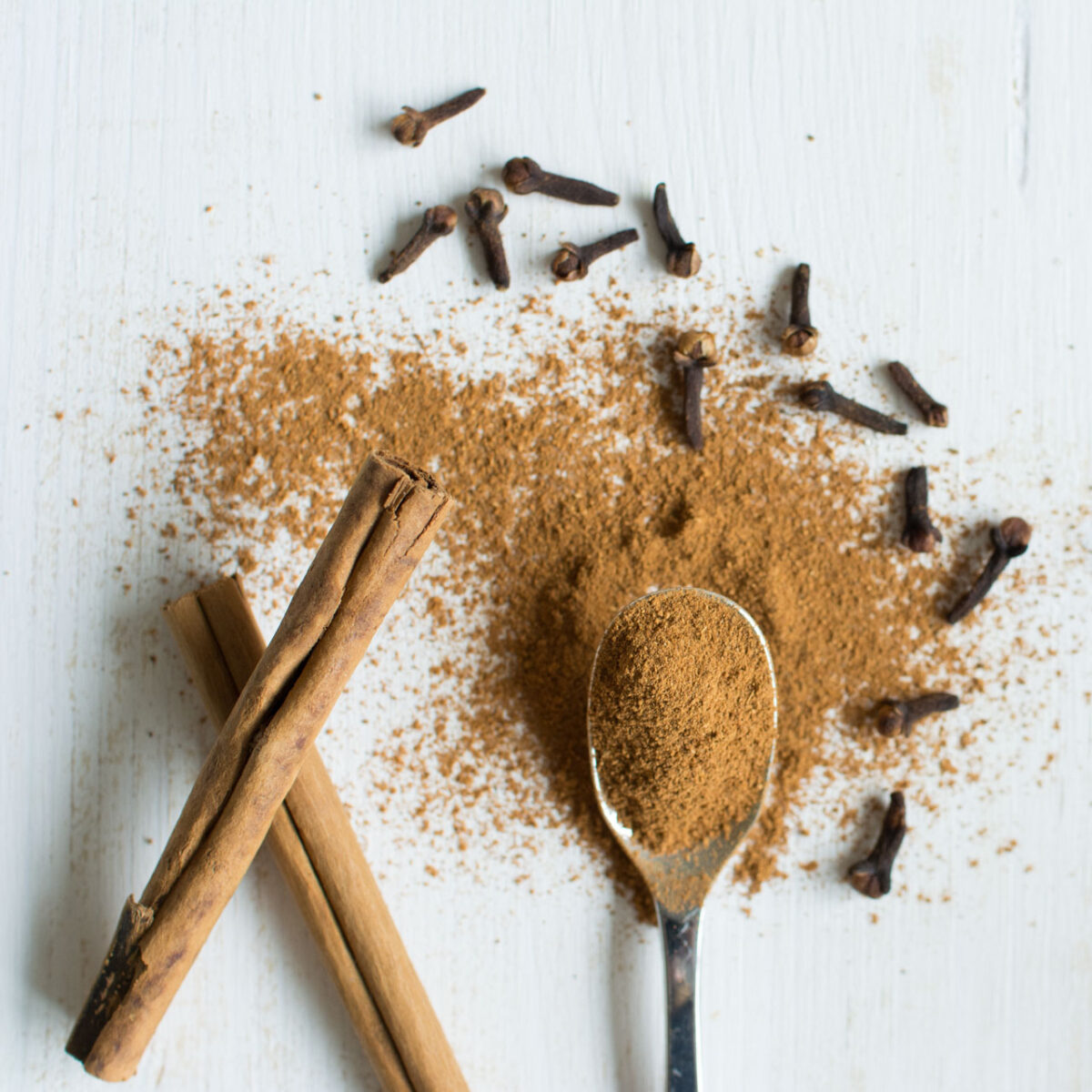There’s nothing like the aroma of warm spices filling your home as you prepare your favorite holiday recipes. From cinnamon and nutmeg to cloves and ginger, these spices are a staple during the holiday season.
As you prepare for your annual cooking and baking traditions, you may wonder if the spices you bought last year are still safe to use. While stale spices don’t usually pose a health risk, they may provide less flavor and aroma to the finished dish.

Continue reading to learn how to determine when herbs and spices have expired, how to store them properly, and what to do with stale products.
Understanding Spice Expiration
Do you need to throw away your spices if it’s past the expiration date on the container? Not necessarily. Consuming herbs and spices past their expiration date is unlikely to make you sick like other expired foods might.
However, stale spices will generally have less flavor and aroma than fresh products, which may impact the taste of your cooking and baked goods.
Factors Affecting Spice Shelf Life
Being thoughtful about the type of spice you purchase (ground versus whole) and how you store them can extend the shelf life of your herbs and spices.
Type of Spice
According to the USDA, ground spices are good for two to three years. Examples include ground cinnamon, ginger, and nutmeg (1). Dried herbs, like rosemary and thyme, are typically good for one to three years.
On the other hand, whole spices have a longer shelf life, lasting up to four years (1). These include cinnamon sticks, cumin seeds, and star anise.
Of note, plain table salt doesn’t expire, so you can continue using it as long as it hasn’t been exposed to moisture.
Optimal Spice Storage
First, consider your spice storage containers. Keep your spices in jars with tight-fitting lids to prevent contact with air.
Next, pick a cool and dry place in your kitchen to store your spices. Moisture, heat, and light can degrade spices over time, so keeping spices on your stove or in front of a sunny window is not recommended.
Storing your spices in a drawer is a great way to protect them from humidity and sunlight. A spice rack on your countertop or wall will also work, so long as it’s away from the oven and out of direct sunlight.
Avoid Contact With Steam
Lastly, consider how you use your spices. Do you frequently shake spices and herbs directly into a steaming pot of food? Though convenient, this can introduce moisture to the spice container, decreasing its shelf life and increasing the risk of mold growth.
Instead, try using a measuring spoon to transfer the spices to your dish while cooking.
Decoding Expiration Dates on Spice Packaging
Most spices from the grocery store will have a date stamped on the container. Often, this date is labeled as “best if used by.”
It does not mean the product is unsafe to consume after the date listed. It simply means that the quality of the spice (the flavor, aroma, etc) may begin to decline once the expiration date has passed (2).
Rather than tossing your spices after the “use-by” date passes, check them for quality first. This will help prevent unnecessary waste and costs.
Signs That Spices May Have Gone Bad
The best way to tell if your spices are stale is to smell them. If you can’t smell the spice or an off-odor is present, it’s best to throw it away.
Check the spice jar for signs of mold or bugs, which is uncommon but possible if your spices are stored in containers that are not air-tight.
When you purchase new spices, label them with the date you opened the containers. This way, you can easily keep track of how old your spices are.

Shelf Life of Holiday Spices
Certain herbs and spices, like cinnamon, nutmeg, and rosemary, remind us of the festive season. Their aroma and flavor are essential in many traditional holiday dishes, from cookies to mulled wine to spiced nuts.
Here are some popular holiday spices and their average shelf life when stored properly:
- Cinnamon: 2-3 years (ground); 3-4 years (sticks).
- Nutmeg: 2-3 years (ground); 3-5 years (whole).
- Ginger: 2-3 years (ground); 3 weeks (fresh).
- Cloves: 2-3 years (ground); 4-5 years (whole).
- Allspice: 2-3 years (ground); 4 years (whole).
- Pumpkin spice: 2-3 years (ground).
- Cardamom: 1-2 years (ground); 3-4 years (whole).
- Star anise: 3-4 years (whole).
- Rosemary: 1-3 years (dried); 1-2 weeks (fresh).
- Plain table salt: Indefinite.
- Pure vanilla extract: Indefinite.
- Peppermint: 1 year (candy); 3-4 years (extract).
If you have certain spices you only use once a year in holiday dishes, consider ways you can incorporate them into your cooking year-round. This will help prevent waste from unused spices going stale.
Additionally, enjoy fresh herbs in your holiday cooking, which last up to 1-2 weeks in the fridge and can be easily repurchased for annual recipes.
Making the Most of Expired Spices
If you’ve identified stale spices in your pantry, don’t send them straight to the trash. You may be able to repurpose them for holiday crafts and non-edible gifts.
- Potpourri: A stovetop potpourri can be a great way to use up stale spices. Simply add to a pot of water and simmer on low to make your house smell amazing.
- DIY beauty products: From homemade soaps to body scrubs, expired herbs can add to the scent and coloring of these products.
- Salt dough ornaments: Add spices like cinnamon, ginger, and nutmeg to a basic salt dough recipe to make holiday ornaments that look and smell like gingerbread.
- Homemade candles: Ground spices also make great scents and coloring for homemade candles. Just avoid whole spices and fresh herbs, as these may catch fire.
If you aren’t able to repurpose expired spices, consider cleaning and recycling the containers and composting the spices.






